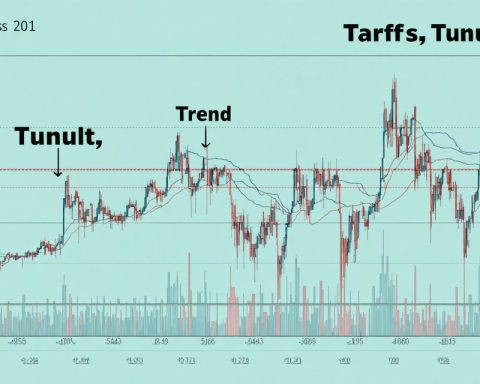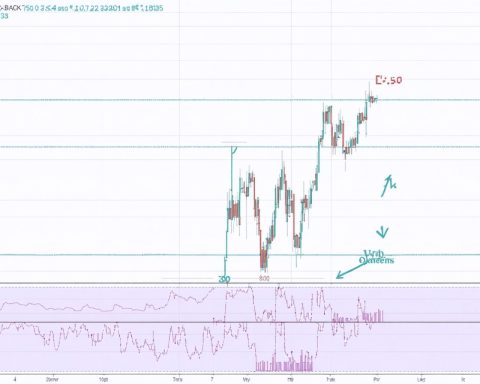As Samsung Electronics gears up to reveal its preliminary fourth-quarter 2024 results on January 8, the investment community is buzzing with speculation on financial projections and revised stock price targets. Recent analyses from the stock market suggest a more cautious outlook.
The past week saw six out of nine securities firms revising their target stock prices for Samsung downwards. Just recently, three out of four firms released statements lowering their projections. Samsung Securities adjusted its target price to 74,000 won from 83,000 won, Daishin Securities shifted to 78,000 won from 85,000 won, and Korea Investment & Securities now suggests 77,000 won, down from 83,000 won.
The collective decision to revise expectations is largely influenced by lowered earnings forecasts. Analysts currently estimate Samsung’s operating profit for the previous quarter at approximately 7.6798 trillion won. This is a significant 10.22% decrease compared to the 8.5536 trillion won consensus previously anticipated. The downturn can be attributed to sluggish demand for traditional memory products as mobile and PC inventory levels adjust.
Researcher Lee Jong-wook of Samsung Securities notes an increase in sales projections to 79.625 trillion won. However, the anticipated operating profit has been lowered by 28%, now standing at 7.26 trillion won. Lee also comments on reduced Samsung Display panel shipments and further inventory adjustments expected through the first quarter.
With ongoing pressures like decreasing smartphone shipments and intensified market competition, Samsung’s stock traded at a low of 49,900 won last year has seen fluctuating investor sentiment. Yet, some analysts maintain optimism, citing a low price-to-book ratio and expecting a market recovery following inventory adjustments.
Samsung’s Upcoming Financial Announcement: What Investors Need to Know
As Samsung Electronics prepares to announce its preliminary fourth-quarter 2024 results on January 8, the investment community is rife with speculation. Investors are closely monitoring changes in financial projections and stock price targets, as recent analyses suggest a shift towards a more cautious outlook. Here’s an in-depth look at what’s shaping these predictions and how they might impact Samsung’s market position.
Revised Stock Price Targets and Financial Projections
The past week has seen a notable trend among securities firms, with six out of nine firms revising their stock price targets for Samsung downwards. This shift reflects a broader reassessment of Samsung’s financial performance expectations. For instance, Samsung Securities adjusted its target price from 83,000 won to 74,000 won, Daishin Securities changed its projection from 85,000 won to 78,000 won, while Korea Investment & Securities now suggests 77,000 won, down from 83,000 won.
Reasons Behind The Downward Revisions
The collective decision to lower expectations stems from decreased earnings forecasts. Analysts have revised Samsung’s operating profit for the last quarter to approximately 7.6798 trillion won, marking a significant 10.22% decrease from the earlier consensus of 8.5536 trillion won. This downturn is largely a result of sluggish demand for Samsung’s traditional memory products, coinciding with adjustments in mobile and PC inventory levels.
Samsung Securities’ researcher, Lee Jong-wook, highlights an increase in sales projections to 79.625 trillion won but notes a considerable reduction in anticipated operating profit by 28%, now at 7.26 trillion won. Contributing factors include reduced shipments of Samsung Display panels and expected inventory adjustments extending into the first quarter.
Market Trends and Investor Sentiment
The ongoing pressures from decreasing smartphone shipments and heightened market competition add to concerns. These factors have led to fluctuating investor sentiment, with Samsung’s stock touching a low of 49,900 won last year. However, a segment of analysts remains optimistic due to Samsung’s low price-to-book ratio and potential market recovery following inventory adjustments.
Predictions and Insights
Looking forward, some analysts predict a turnaround post-inventory adjustment phase. While short-term challenges persist, such as inventory issues and competitive pressures, Samsung could leverage its robust price-to-book ratio and scale to recover in the medium to long term. This potential recovery may present investment opportunities for those looking to capitalize on future growth once the current hurdles are addressed.
As investors await Samsung’s formal announcement, those considering positions in Samsung should stay informed about ongoing market trends and adjustments, crucial for making strategic decisions. For more insights on market trends and Samsung’s position, visit the main Samsung website at [Samsung](https://www.samsung.com).
Conclusion
As Samsung Electronics approaches its quarterly announcement, investors must weigh current market dynamics and revised forecasts. The volatile nature of the tech market demands vigilance, but with a strategic approach, opportunities may still be ripe in the near future.


















